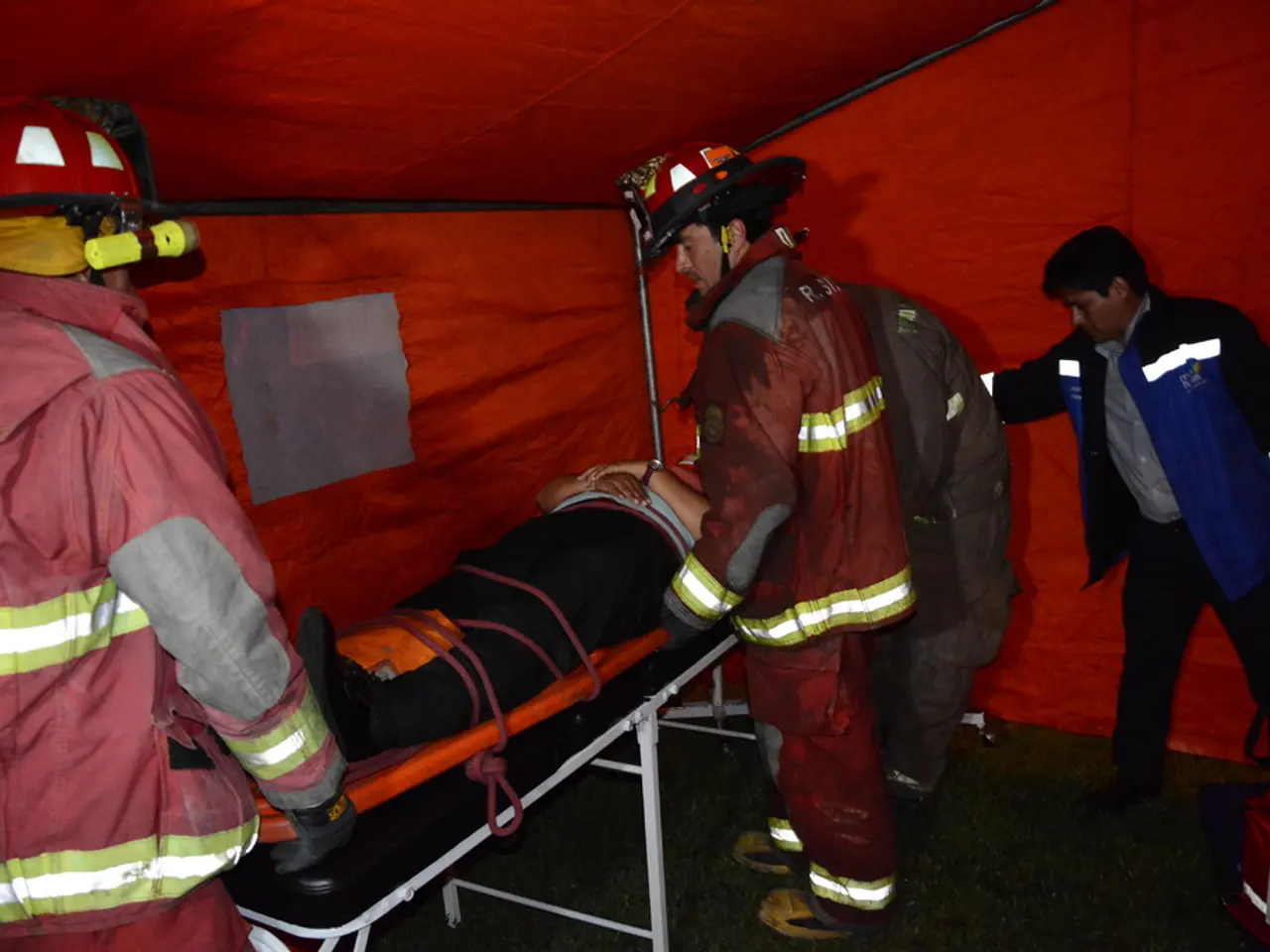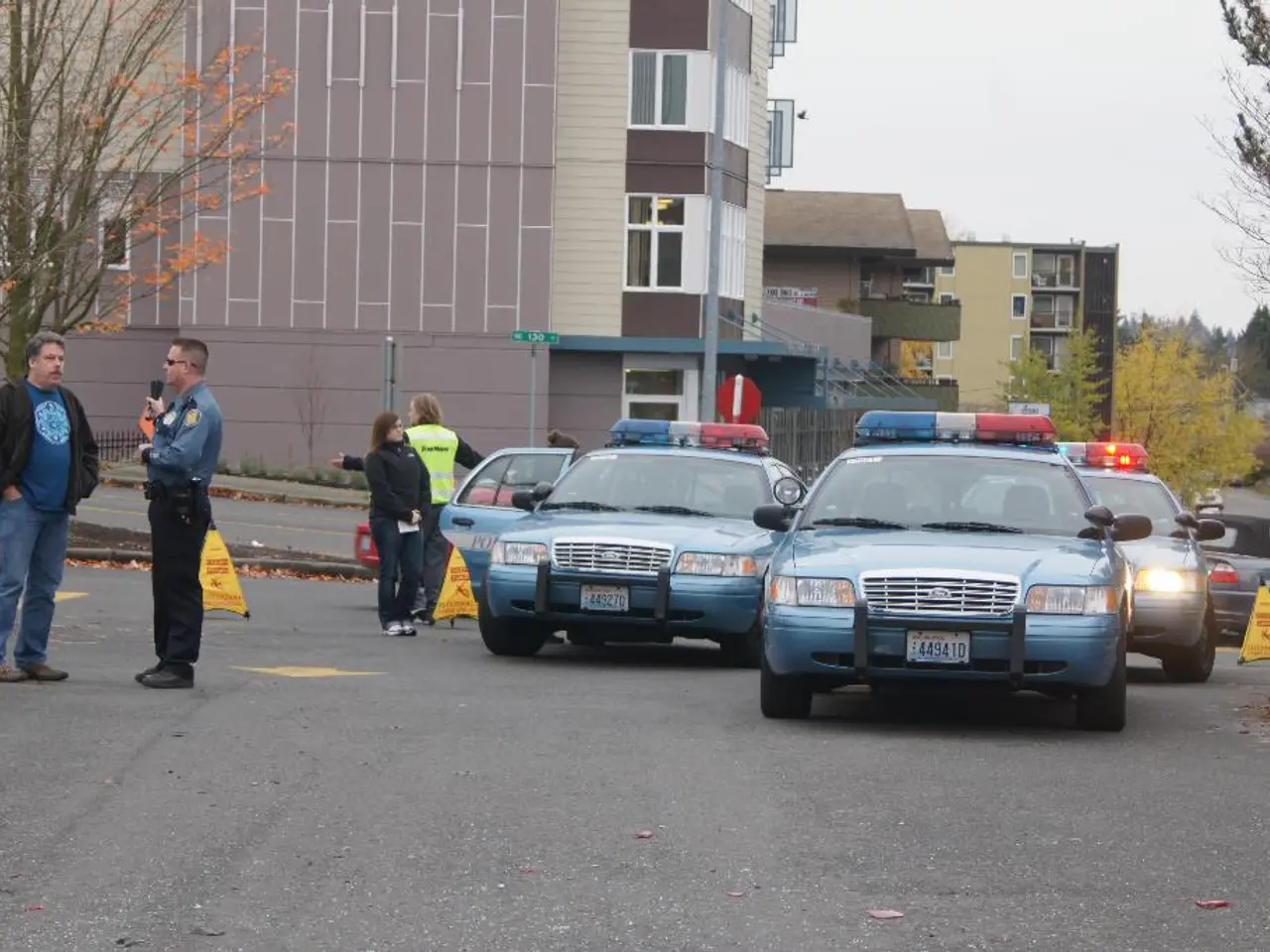Investigation Utilizing the ABCDE Methodology
In the vast and unpredictable wilderness, emergencies can occur without warning. To effectively manage these situations, wilderness responders rely on the ABCDE Primary Survey - a structured approach that helps prioritise and address life-threatening conditions in a systematic manner.
The ABCDE acronym serves as a reminder for the critical elements to be assessed: Airway, Breathing, Circulation, Disability, and Environment. By following this order, responders can swiftly identify and treat the most pressing issues, ensuring the best possible outcome for the patient.
Beginning with the Airway, responders assess whether it is open and clear. Foreign bodies, vomit, blood, or swelling may indicate obstructions that need to be addressed. In cases of suspected trauma, spinal precautions should be maintained while opening the airway.
Moving on to Breathing, responders evaluate the effectiveness of the patient's breathing. This includes checking the respiratory rate, effort, and oxygenation. If necessary, ventilation assistance or oxygen can be provided.
Circulation is the next critical area to assess. Responders check the pulse, skin colour, temperature, and capillary refill. Any major bleeding should be controlled immediately, and signs of shock treated accordingly.
Disability, or the patient's neurological status, is the fourth element to evaluate. Responders quickly assess the level of consciousness using AVPU (Alert, Verbal response, Painful response, Unresponsive) or GCS. Pupil size and reaction are also checked, and any signs of neurological injury or deterioration are identified.
Finally, the Environment is considered. The patient is fully exposed to identify any hidden injuries or medical signs. Environmental factors such as hypothermia, hyperthermia, wet conditions, and visible injuries are taken into account. The patient should also be protected from further harm.
The ABCDE Primary Survey is an essential tool in wilderness first response, helping responders prioritise care, avoid tunnel vision, and prevent small issues from becoming fatal. It provides a clear, concise framework for managing emergencies in remote or austere settings where resources and immediate medical backup may be limited.
The Wilderness First Responder course offers hands-on training in performing these assessments in real-world scenarios. By mastering the ABCDE Primary Survey, responders can save lives in some of the most challenging environments imaginable.
- In order to effectively respond to emergencies in the wilderness, wilderness responders utilize the ABCDE Primary Survey, which serves as a crucial tool for addressing life-threatening conditions in a methodical manner.
- The Wilderness First Responder course equips responders with practical training in executing ABCDE assessments in real-world situations, thereby enabling them to potentially save lives in demanding environments.
- By adhering to the systematic ABCDE approach, responders can prioritize their actions, avoiding a narrow focus and preventing minor issues from escalating into severe complications.
- In addition to prioritizing the patient's immediate needs, the ABCDE Primary Survey also involves considering the environment, ensuring responders take into account factors like temperature, humidity, and potential injury sources that may contribute to the patient's overall condition.




